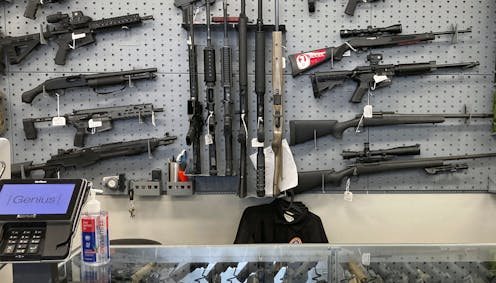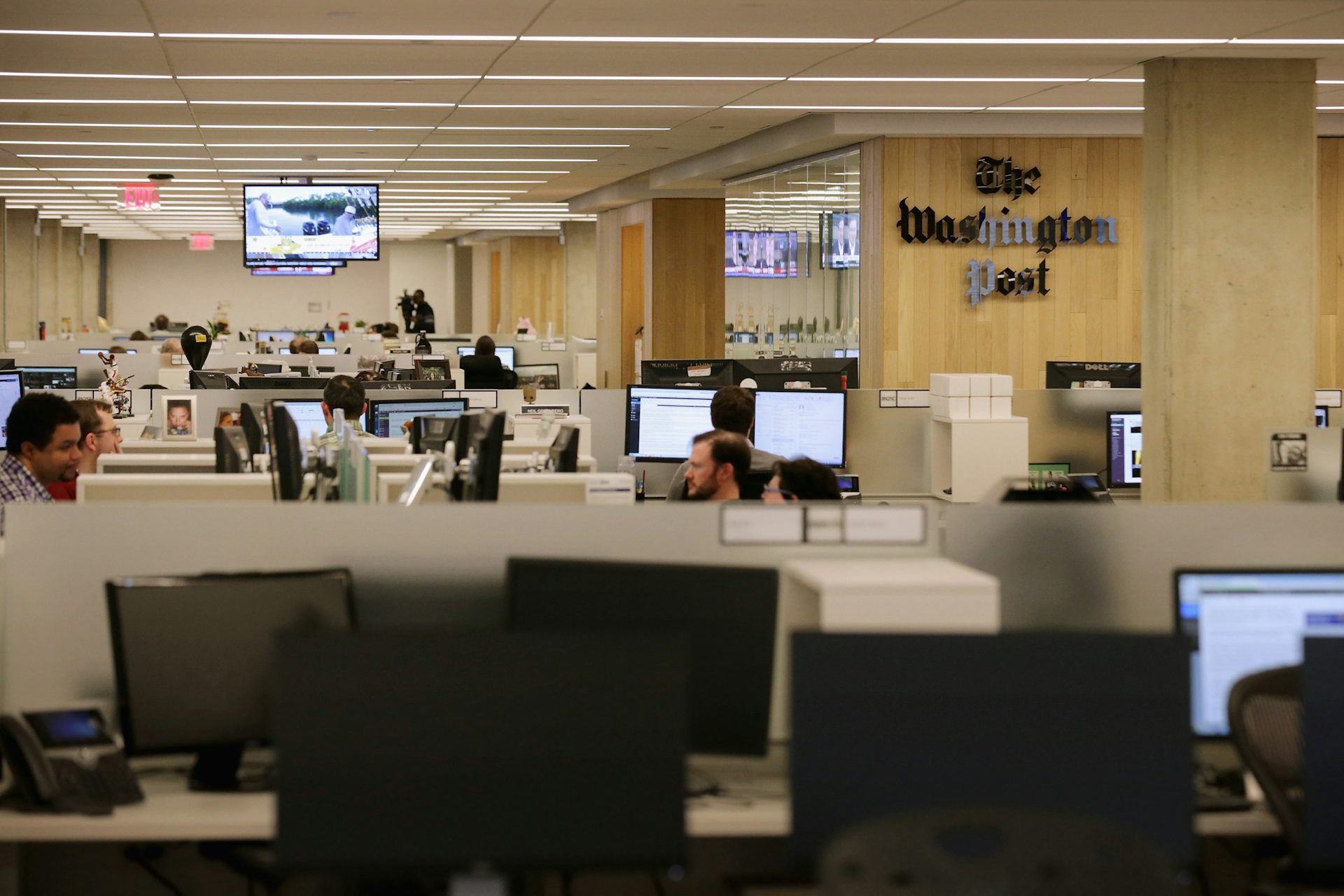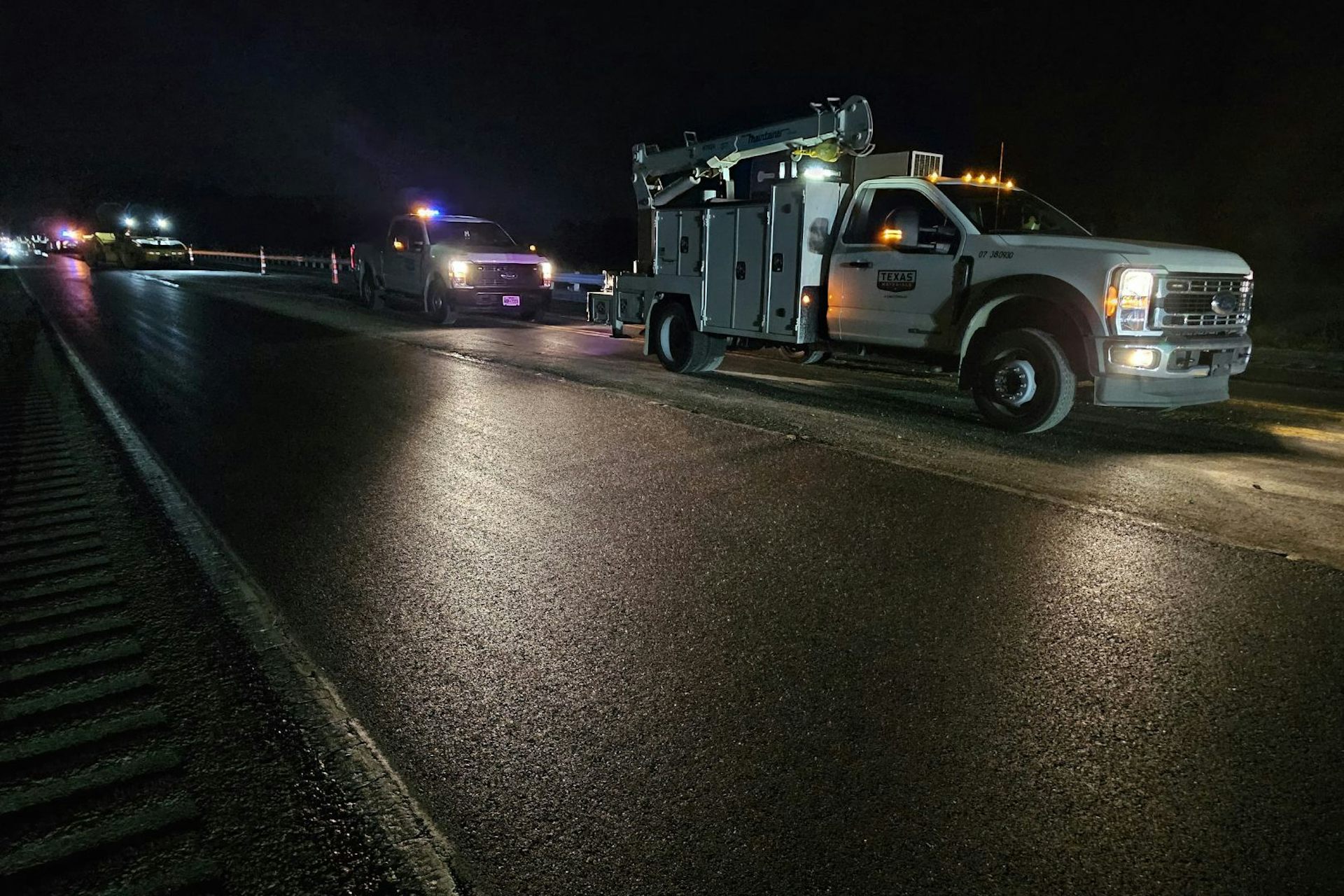US gun trafficking to Mexico: Independent gun shops supply the most dangerous weapons
Independent gun dealers supplied 83% of crime guns seized in Mexico and traced back to purchases in the US. Chain stores supplied the other 17%.

A gunsmith from a rural town, a former Marine, and half a dozen others were under investigation in San Antonio, Texas, starting in the summer of 2018 for trafficking more than half a million dollars worth of guns and ammunition to the Cartel del Noreste, a drug cartel prominent in northeast Mexico with connections to former Mexican soldiers.
Jose J. Soto Jr. was in the U.S. Armed Forces from 2004 to 2015, including a stint with the elite Army Rangers. He came on Homeland Security Investigations’ radar around 2017 for working with a human trafficker and gunrunner for the cartel.
Through 2018, Soto and gunsmith Brian Morris purchased hundreds of rifles, including .50-caliber Barretts. Morris often purchased the rifles or their parts, built them out into unserialized “ghost” machine guns and sold them to Soto. Soto flipped the weapons to Cartel del Noreste, also commonly referred to as the Northeast cartel.
The gun dealer Zeroed In Armory sold more than 170 firearms to Morris over eight months. Two were later recovered at Mexican crime scenes. A federal agent reviewed invoices totaling US$122,225 in weapons sales to Morris, but Zeroed In continued business unencumbered.
And Zeroed In wasn’t the traffickers’ biggest supplier. CDNN Sports Inc., a firearm dealer currently based out of Abilene in central Texas, sold $280,000 worth of magazines, high-powered ammunition and assault rifles to Soto. Soto flipped the weapons to the cartel.
Independent firearm businesses like Zeroed In Armory are the largest suppliers of crime guns bought in the U.S. and trafficked to Mexico.
We are a professor of economic development and an investigative journalist. We have spent a year sifting through documents and datasets during our investigation of gun trafficking to Mexico and its effects. We built a dataset of trafficked weapons linked to 100 U.S. court cases. We combined this with leaked records of crime guns that were seized by authorities in Mexico from 2018 to 2020 and traced back to gun dealers in the U.S. by the ATF.
Read the full investigation: Mexican drug cartels use hundreds of thousands of guns bought from licensed US gun shops – fueling violence in Mexico, drugs in the US and migration at the border
In this combined dataset, independent gun dealers accounted for 83% of weapons trafficked to Mexico that we can trace back to U.S. dealers, including most of the most dangerous types of trafficked guns. Chain stores sold the other 17%.
We also found that the most dangerous types of trafficked guns originated predominantly from independent stores. Fifty-caliber sniper rifles were 60 times as likely to come from independent dealerships compared to chain stores, and 7.62 mm assault-style weapons are 16 times as likely to do so.
Top Independent dealers
Zeroed in Armory tops the list of independent gun dealers, with 488 crime guns from Mexico traced back to the store. But CDNN Sports doesn’t appear on the list despite the sales to traffickers because the individual guns they sold Soto were not found in the public documents for his case. Most weapons that are trafficked aren’t seized or traced back to dealers, and those that are are largely obscured from public view.
Second on the list is Pete’s Sport Shop in Madera, California, where traffickers bought over 400 Ruger rifles between October 2007 and March 2009, often dozens at a time. One defendant said he recruited people for straw purchases because he was buying so many rifles that the store cut him off.
Third is Chaparral Guns. Owner Ian Garland ran his operation out of a trailer home where he lived with his wife. His scheme allegedly involved a police chief, village trustee and mayor. A dozen guns recovered from Mexican murder, kidnapping and drug-dealing crime scenes were traced back to his business, and he was sentenced to 37 months in 2013.
The independent dealer Catalina Pawn in Tucson, Arizona, sold 132 pistols, assault rifles and rifle receivers to three people between Oct. 29, 2021, and Feb. 7, 2022. Eighteen of the weapons were found in Mexico within a year of being sold. A representative from the gun store said they stopped selling .50-caliber and AK-47-style rifles after several suspicious cash purchases.
Top chain stores
Academy Ltd. is the biggest U.S. chain store supplier in the combined dataset – by far. Between 2020 and 2022, Academy sold 369 firearms that were recovered in Mexico, more than double the next largest source, the retail chain of Bass Pro Shops and Cabela’s.
Academy stores in 19 cities, including 13 in Texas, were issued warning letters for firearm sales violations from 2015-2018. Two stores were also issued a warning conference letter to meet with ATF regulators.
An Academy store in Edinburg, just outside of the border city McAllen, received three citations, including sale of firearms to a prohibited person, according to the Brady Center’s inspection data. The store sold nine weapons that were recovered in Mexico, according to the trace data. A store in Midland that was likely tagged for not reporting the sale of multiple rifles sold 11 firearms recovered in Mexico. And a store in Odessa that was issued a warning for selling firearms to an alien along with four other violations sold 13 firearms recovered in Mexico.
An Academy store in northwest San Antonio received six citations and a warning conference in January 2016, but two years later it supplied at least six firearms to a former U.S. Marine who trafficked guns for the Cartel del Noreste.
And Academy stores in northwest and southeast El Paso, Texas, sold 52 guns that were recovered in Mexico, the most among Academy locations. Neither store recorded an ATF enforcement action.
Firearms make up 5% of the company’s net sales, between $308 million and $339 million, not including ammunition and accessories such as scopes, sights and mounts.
In its 2024 Securities and Exchange Commission report, Academy noted that consumers may be turned away by the controversial product. It referenced firearms as a risk for a catastrophic event and allocated much of its lawsuit risk section to its heavy investment in firearm sales.
The company also benefits from being near highways and major thoroughfares that make it easy for customers to visit multiple locations. Its SEC filing explained that store locations “are typically positioned adjacent to major highways or thoroughfares.”
Meanwhile, Cabela’s and Bass Pro Shops supplied 150 guns to the illicit market, according to the combined trace data. Owner Great Outdoors Group LLC is a private company, so it doesn’t have to file company information with the SEC. The company’s name appears in three court cases linked to illicit arms to Mexico.
One Cabela’s in Glendale, Arizona, sold 36 firearms that were recovered across the border.
And Cash America, owned by FirstCash Inc., which runs nearly 3,000 pawnshops, mostly in Texas and Mexico, supplied 158 firearms that were recovered in Mexico. In its 2024 SEC filing, FirstCash notes the risk of losses and reputational damage from “lawsuits relating to its performance of background checks on firearms purchases.”
A cautionary tale
The independent gun seller D&D Gun Parts also shows up in the combined deataset with 69 trafficked weapons traced back to them – most of them by way of a 2017 indictment.
On the last day of April 2017, Mexican authorities in Guadalajara, Jalisco, seized five .38-caliber pistols that pointed to one purchaser: Casmiro Tapia. The trace results showed that he’d bought the weapons about two weeks before they showed up at the crime scene. And his travel history showed that he had crossed into the U.S. through Laredo on April 11, purchased the guns on April 13, then crossed back through the Laredo checkpoint the next day.
Between April and August, Tapia had purchased 66 handguns of the same makes and models from one dealer at monthly SAXET gun shows: D&D Gun Parts, then based out of Bastrop, Texas, according to court documents.
When he was taken into custody in August, Tapia admitted to selling the weapons for a profit of $50 to $70 each, although he didn’t say how many he’d sold. After subtracting the weapons recovered from Tapia and his home, along with the weapons found in Mexico, 43 handguns were unaccounted for at the time of Tapia’s indictment.
D&D Gun Parts, now located in Atascosa, Texas, according to the gun shop’s most recent ATF license, has continued business unabated. The combined dataset shows that two additional Barrett .50-calibers and a handgun traced back to them were recovered in Mexico in 2019 and 2020 at crime scenes.
Between the time the former Marine Soto was indicted in 2018 and sentenced in 2020, then-President Donald Trump offered up vitriolic invective to Mexican officials. In November 2019, he blamed them for not containing organized crime and pushed for changes to loosen regulations on gun exports.
Meanwhile, on the last day of that month, more than 50 armed members of the Cartel del Noreste, dressed in military fatigues, stormed the town hall of Villa Unión in Coahuila, a small border town of around 3,000 residents. The ensuing firefight lasted more than an hour. At least 16 gunmen and four local police were killed. A firefighter and an engineer were abducted and later killed.
Two days later, Mexican security forces seizeda belt-fed, .50-caliber rifle, which fires 5½-inch rounds as fast as a shooter can pull the trigger, from organized crime members connected to the shootout. The weapon was American made. It was produced by JnC Manufacturing and sold by gun dealer Zeroed in Armory, also referred to as ZIA, in Pearland, Texas, just outside of Houston.
Within a week, police in Brownsville, Texas, responding to a call of shots fired found four disassembled high-powered assault rifles bundled with blue painter’s tape. Israel Bernal Chapa Jr. had purchased them a day earlier from Zeroed in Armory. Days later, ATF agents found that the rifle from the Villa Unión massacre had also been purchased by Chapa from Zeroed in Armory. Chapa had purchased at least 156 firearms from the dealer in less than six months. Chapa told the ATF that the guns he bought were sold for trafficking into Mexico.
The agents set up an undercover operation to implicate Zeroed in Armory owner Khalid Abdullah Abdullaziz in trafficking. Two informants scoped out the wares on March 27, 2020, paying attention to the big guns and a $13,000 tripod-mounted, .50-caliber rifle, then purchasing two high-powered rifles. Before they closed the deal, one of them told Abdullaziz that he was a convicted felon.
“You are probably not going to pass a background check then,” Abdullaziz said, then told the men that if the one without a record wanted to purchase the firearms, he could. If a transfer happened later, that would not be on Abdullaziz. He told them that “obviously if you give them to him, and I know you guys are getting them for home protection, so if you give them to him and you get caught, that’s – definitely don’t do that.”
Over the next three weeks, Abdullaziz sold the informant another weapon directly – skipping the paperwork – and let him put a down payment on a .50-caliber rifle. During one visit, the informant chatted over the phone in Spanish about gun purchases, then told Abdullaziz, “The boss is making me drive all the way down to Mexico with this shit.” Abdullaziz said he shouldn’t take the weapons to Mexico because it’s a federal crime, but he didn’t stop processing the purchase paperwork.
As he wrapped up the sale of another rifle, before he submitted the background check, Abdullaziz asked the informant’s friend, “You are not buying it for anyone else, right?” He added, “You are allowed to buy a thousand of them if you want. You just can’t buy for anyone else.”
Abdullaziz was defending himself in front of a federal judge before the end of April. Over the next 2½ years, federal investigators would unravel a transnational ring based out of Houston that involved over 500 firearms going over the border – 60 of which turned up at violent crime scenes in Mexico – and kilos of meth going north. By April 2022, the cell’s leader, Gustavo Gomez-Valenzuela, joined Abdullaziz and Chapa to become the 17th associate convicted of multiple trafficking crimes. Four months later, Gomez-Valenzuela’s son, Guillermo Gomez-Lazcano, became the 18th associate sentenced to prison.
Read the full investigation: Mexican drug cartels use hundreds of thousands of guns bought from licensed US gun shops – fueling violence in Mexico, drugs in the US and migration at the border
The authors do not work for, consult, own shares in or receive funding from any company or organization that would benefit from this article, and have disclosed no relevant affiliations beyond their academic appointment.
Read These Next
As Jeff Bezos dismantles The Washington Post, 5 regional papers chart a course for survival
Other billionaires who own newspapers are doing a better job, a journalism professor explains.
Valentine’s Day cards too sugary sweet for you? Return to the 19th-century custom of the spicy ‘vine
Victorians found a way to anonymously tell people they didn’t like exactly how they felt.
How do scientists hunt for dark matter? A physicist explains why the mysterious substance is so hard
Dark matter doesn’t seem to interact with the matter we can see and touch, so scientists look for…





